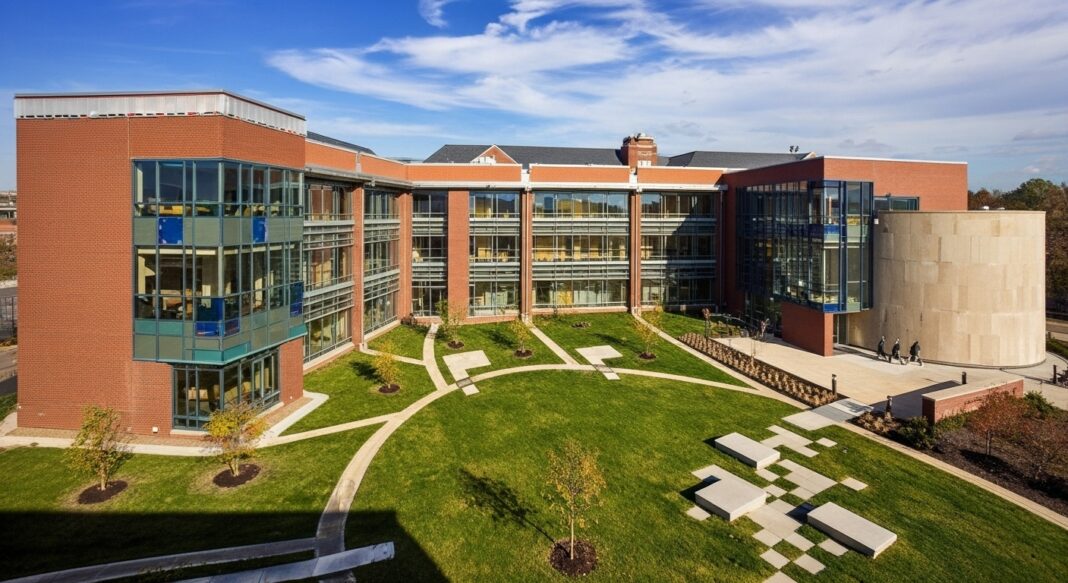Zambian Universities That Offer Medicine and Surgery: Complete 2025 Guide
Pursuing medicine in Zambia offers excellent opportunities for aspiring doctors. The country has expanded its medical education capacity significantly over the past decade. In this comprehensive guide, we explore Zambian universities that offer medicine and surgery, admission requirements, costs, and career prospects for medical students.
Understanding Medical Education in Zambia
Medical degrees in Zambia follow the Bachelor of Medicine and Bachelor of Surgery (MBChB) program structure. This comprehensive five to six-year program combines theoretical knowledge with extensive clinical training. Moreover, some universities offer specialized programs in Clinical Medicine, which differ from the full MBChB degree.
MBChB vs. Clinical Medicine
Bachelor of Medicine and Bachelor of Surgery (MBChB):
- Full medical doctor qualification
- Duration: 5–6 years
- Includes extensive clinical rotations
- Graduates can practice as medical doctors
- Required for specialist training
Clinical Medicine Programs:
- Diploma or Bachelor of Science in Clinical Medicine
- Duration: 3–4 years
- Focuses on specific clinical areas
- Graduates work as clinical officers
- Limited to specific practice areas
Top 10 Medical Schools in Zambia
Based on academic reputation, facilities, accreditation, and graduate outcomes, here are the top 10 medical schools in Zambia.
1. University of Zambia (UNZA) School of Medicine
UNZA established Zambia’s first medical school in 1965, with its first intake in 1966. The school became an independent School of Medicine under the University of Zambia in 1970. Since then, it has remained the nation’s flagship medical training institution.
Key Facts:
- Location: University Teaching Hospital (UTH) and Ridgeway Campus, Lusaka
- Programs: MBChB, Pharmacy, Nursing Sciences, Biomedical Sciences, Physiotherapy, Environmental Health, Public Health
- Output: Since 1973, the school has produced over 1,200 medical doctors
- Postgraduate Programs: Introduced in 1981 (Surgery, Obstetrics & Gynaecology, Paediatrics, Medicine, Orthopaedics)
Why UNZA Leads:
The University of Zambia School of Medicine continues to be a prime institution of the Government of Zambia in health education. Furthermore, it operates under the motto “Service and Excellence.” The school conducts quality research that has influenced policy and improved clinical practice.
Admission Requirements:
- Minimum of five credit passes at Grade 12 level
- Must include Mathematics, Chemistry, Biology, Physics, and English
- Strong science performance preferred
- Competitive entrance examination
Annual Fees:
Approximately $1,200–$2,000 per year (Zambian students); higher for international students.
2. Texila American University Zambia (TAUZ)
Texila American University, located in Lilayi, Zambia, was established in 2016. Today, it stands among the best private universities for medicine and surgery in the country.
Program Highlights:
The Bachelor of Medicine and Bachelor of Surgery (MBChB) is a prestigious program combining foundational sciences, clinical practice, and research. Students gain both theoretical knowledge and hands-on training.
What Makes Texila Premium:
- Internationally recognized degree
- Strong focus on clinical excellence
- US clinical rotation opportunities
- Modern teaching infrastructure
Clinical Affiliations:
TAUZ partners with major hospitals to ensure students gain extensive clinical experience.
Curriculum Structure:
Covers Biochemistry, Anatomy, Physiology, Pharmacology, Pathology, and Fieldwork. The university also provides mentorship through its Learning Management System (LMS).
Admission Process:
A holistic process evaluates resilience, motivation, and academic readiness. Additionally, leadership qualities and communication skills are highly valued.
Preparatory Program:
Students may start with the Health Professions Foundation Program (HPFP) before advancing to MBChB.
Annual Fees:
MD & Premed Programs: $18,000; US Clinical Rotations: $15,735.
3. Copperbelt University (CBU) School of Medicine
The idea to establish the CBU School of Medicine was conceived in 2009. By 2011, the university had officially inaugurated the school, making it Zambia’s second medical institution.
Programs: MBChB (Medicine & Surgery), BDS (Dental Surgery)
Training Sites: Ndola Central Hospital and Arthur Davison Children’s Hospital provide primary clinical experience.
Vision:
To produce sufficient doctors and dentists to meet WHO recommendations—1 doctor per 5,000 population.
International Collaborations:
Part of the Consortium of New Medical Schools (CONSAMS) and NIH-funded Medical Education Initiative.
Admission Requirements:
A-level passes in Mathematics, Biology, Chemistry, and Physics; or one year of Natural Sciences with strong science results.
Annual Fees:
Around $1,770 per year (SADC students); higher for international students.
4. Cavendish University Zambia
Founded in 2004, Cavendish University was Zambia’s first private university. Its MBChB program is accredited by the Health Professions Council of South Africa (HPCSA) — enhancing graduates’ employability across southern Africa.
Programs: MBChB and postgraduate degrees
Facilities: Two Lusaka campuses with modern hostels
Special Opportunity: Full scholarships for top students
Annual Fees:
- MBChB: $5,000/year
- Postgraduate: $6,667–$7,292/semester
5. Levy Mwanawasa Medical University (LMMU)
LMMU integrates the Chainama College of Health Sciences, Levy Mwanawasa Teaching Hospital, and Dental Training School. Consequently, it provides one of the most complete medical ecosystems in Zambia.
Programs:
MBChB, Dental Surgery, Clinical Anaesthesia, Clinical Psychiatry, Clinical Ophthalmology, Optometry.
Annual Fees: $1,000–$1,800/year.
6. Mulungushi University School of Medicine
Based in Livingstone, Mulungushi University Medical School opened in 2017 within Livingstone Central Hospital. As a result, students receive clinical exposure from early on.
Annual Fees:
Tuition: $445/semester; Total annual cost: $1,350.
7. Lusaka Apex Medical University (LAMU)
LAMU operates multiple campuses and focuses on specialized medical education.
Annual Fees: $2,000–$4,000 annually.
8. DMI-St. Eugene University
Offers medical programs centered on Christian values and ethical practice.
Annual Fees: $8,000–$10,000/year.
9. Chalimbana University
Provides flexible learning options including distance modes.
Annual Fees: $4,500–$6,500/year (regular); $600–$1,200 (distance).
10. Rusangu University
Faith-based medical training by the Seventh-day Adventist Church.
Annual Fees: $3,000–$5,000/year.
Best Private Medical Universities in Zambia
Among private institutions offering medicine, these excel:
- Texila American University – $18,000/year
- Cavendish University – $5,000/year
- Lusaka Apex Medical University – $2,000–$4,000/year
- DMI-St. Eugene University – $8,000–$10,000/year
Universities That Offer Clinical Medicine in Zambia
Clinical Medicine programs differ from MBChB degrees. Therefore, graduates work as clinical officers supporting medical doctors.
Institutions Offering Clinical Medicine:
- Levy Mwanawasa Medical University
- Zambian Open University
- Various technical colleges
Career Prospects and Salaries
Zambian medical graduates can work in public hospitals, private clinics, NGOs, or pursue specializations like Surgery, Paediatrics, or Radiology.
Salaries:
- Government doctors: K8,000–K15,000/month
- Private doctors: K15,000–K30,000+
- Specialists: K25,000–K50,000+
Conclusion
Zambian universities that offer medicine and surgery provide diverse opportunities. From UNZA’s legacy of excellence to Texila’s international standards, students can choose based on budget, goals, and global recognition.
Before enrolling, verify HEA accreditation, compare fees and facilities, and visit campuses to make an informed choice. Ultimately, your medical education journey in Zambia begins with one decision — choosing the right university to shape your future in healthcare.
For more inspiration and worship resources, visit zambiaguardian.com for faith-based news and community updates.


